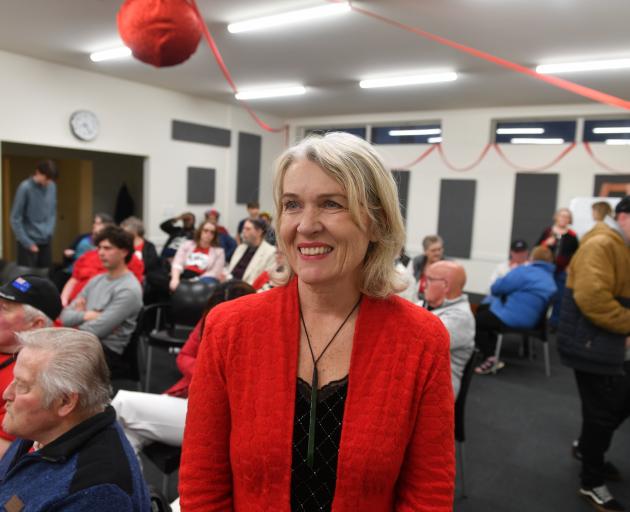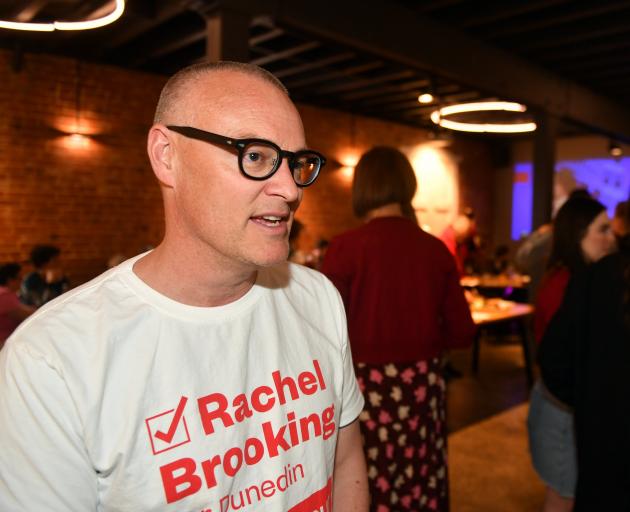
In some ways, it was business as normal: blue seats stayed blue, red seats stayed red, and the party votes followed accordingly.
In other ways not.For a start, provisional turnout figures suggest that thousands of southerners opted to sit this one out. Turnout was down across the board, by from 6000 to 7000 in the provincial seats, and by 8413 in Taieri and 11,588 in Dunedin.

As for the remainder, they were also sniped at from the left — the share of Green Party votes in Taieri was up by 1193 and in Dunedin by 746.
While National’s party vote certainly increased, in the South at least it was a blue ripple rather than a wave; the National Party vote in Waitaki went up by 2703, in Southland by 1960, and in Invercargill by 2137 — more than respectable gains but not in landslide territory.
National will, naturally, be more than satisfied with its result, but — to use rugby parlance — there are plenty of work-ons.
For a start, it will have expected to reclaim much of the vote which it lost to Act New Zealand in 2020 from disgruntled loyalists frustrated beyond their limit by the lack of unity and leadership in National at the time.
However, that appears to not have been the case. Act’s party vote share did indeed drop in every southern electorate, but it was by a degree of hundreds not by thousands. While it may have hoped for better, it basically held what it won in 2020 rather than meekly surrendering it back from whence it came.
In fact, it would come as no surprise if many of those defecting Act voters had shifted to the New Zealand First camp. It has been operating extensively in the same rural/anti co-governance/pro-firearms owner’s rights space that Act had tried to make its own, and a nationwide 6.5% party share vote — combined with the never-dimming appeal of Winston Peters to his core constituency — suggests that its strategy worked.

The other big southern result was, of course, Te Tai Tonga, where in an upset for the ages Tākuta Ferris claimed the seat for Te Pāti Māori, from Labour’s Rino Tirikatene.
Turnout was again a factor here — down by almost 10,000 from 2020 — but tactical voting may also have been. Mr Ferris netted 9426 candidate votes but Te Pāti Māori got just 4471 party votes, up only 1875 from 2020.
Mr Tirikatene was high on Labour’s list — and has indeed been returned as an MP — so it is not inconceivable that Te Tai Tonga voters thought that they had a decent shot of landing two MPs by splitting their votes.
What next?

Ministerial portfolios are the next big thing to be decided, although much will hang on what kind of coalition and confidence and supply agreements are thrashed out.
Of local interest will be whether our highest-ranked National MP, Penny Simmonds, makes it into Cabinet. Her efforts during her first-term would merit it, and the anticipated elevation of Gerry Brownlee to the Speaker’s chair boosts her chances.
Of our other local Nats, Joseph Mooney’s claims may well be sacrificed to the ambitions of other parties, but it would come as no surprise if he were given portfolios outside Cabinet or made an under secretary. Newbie Miles Anderson will be hoping for a select committee placement which matches his expertise.
Act list MP Todd Stephenson and New Zealand First list MP Mark Paterson were both ranked high enough on their respective party lists to warrant consideration for more than backbench roles, but their fortunes will depend on how good a deal their negotiators can cut with National.

Dunedin’s new Green MP Scott Willis will need some time to learn the ropes, but his party always tries to keep its backbenchers occupied so he should have plenty of work to get stuck into during the next three years.
On a personal note
Former Labour leader Andrew Little was the first of his party’s totara to fall, announcing his retirement on Tuesday. I first started bothering Mr Little in the 1980s when he was president of the Victoria University Students Association and I was writing for campus newspaper Salient, and I went right on bothering him up until he became health minister and I was covering the new Dunedin Hospital rebuild for the Otago Daily Times. He’s a thoroughly decent bloke who overcame serious health issues to achieve what he did in politics. Good luck to him in whatever endeavour I end up bothering him in next.












